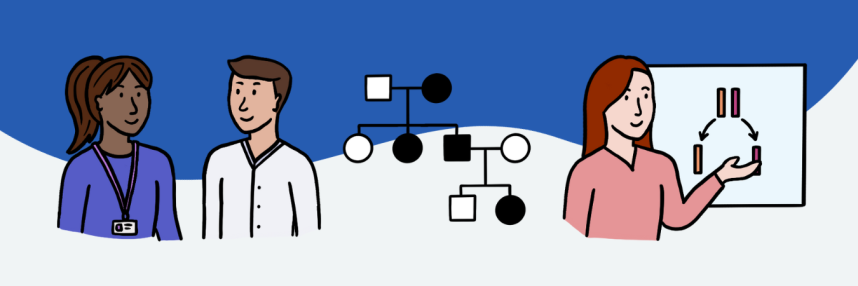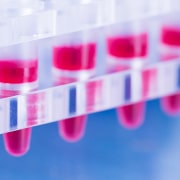Eight things a genetic counsellor may already be doing in your clinic
Image credit: Lily Barnett
For today’s #GeneticCounsellorAwarenessDay2023, NHS genetic counsellor Lily Barnett explains what you may see from this increasingly important and specialised profession
Genetic counsellors play a crucial role in helping patients and other healthcare professionals understand complex information in the fast-moving worlds of genetics and genomics. In the UK, there are roughly 300 genetic counsellors practicing in the NHS. They are highly skilled healthcare professionals with expertise in science, education, counselling and patient advocacy. Increasingly, you will find genetic counsellors working in a diverse range of specialisms including (but not limited to) cardiology, oncology, neurology, rare disease and reproductive genetics. There are also many genetic counsellors working in research or private practice.
The role of a genetic counsellor can be extremely varied, but what might you find them doing on a day-to-day basis?
1. Communicating genomic information to patients, effectively and with empathy
One of the primary roles of a genetic counsellor is to provide patients with information in an understandable and manageable way. They may discuss how a condition is inherited through a family, the implications of genomic testing as well as possible treatment and management options. Importantly, they will also provide compassionate support to patients and families, addressing the potentially emotional aspects of dealing with this information.
2. Assessing family history
Genetic counsellors are skilled in taking detailed family histories. This information is essential for identifying potential hereditary conditions in a family and spotting patterns of inheritance. This process helps genetic counsellors make an accurate risk assessment, which can direct any further investigations or clinical management.
3. Organising appropriate genomic testing and delivering results to patients
A large part of a genetic counsellor’s job is to guide patients through the process of genetic testing. This may be in the context of establishing a diagnosis in an individual with a suspected genetic condition, or providing predictive testing to family members who may be at risk of a condition. Genetic counsellors are trained in understanding genomic test results and feeding these back to patients in an understandable and empathic way. They can also facilitate family communication and support relatives to access testing and genetic counselling.
4. Using counselling skills to help patients make informed decisions
Genetic counsellors play a crucial role in helping individuals and families make informed decisions about their care. This may include decisions around genomic testing, medical management, and family planning options. The amount of information can sometimes feel overwhelming and genetic counsellors are trained in using core counselling skills to guide patients through the available options while identifying their values and preferences for a “best fit” way forward.
5. Working within a multidisciplinary team
Genetic counsellors will work alongside a diverse team of different healthcare professionals, including clinical geneticists, doctors from a range of specialisms, nurses, midwives, clinical scientists, and clinical researchers. Working within a team is vital for providing comprehensive and coordinated care for patients, many of whom have complex conditions.
- Discover genomics’ impact on your profession: Genomics in healthcare
6. Advocating for patients and providing support
Genetic counsellors will often act as an advocate for their patients within a healthcare system. This may involve helping patients access appropriate care, coordinating referrals to specialists or signposting to further resources. This may also involve being a voice for a patient’s wishes and values within a multidisciplinary team meeting, ensuring their needs are met. Genetic counsellors can also help patients navigate difficult ethical, psychological or social concerns.
7. Educating other healthcare professionals about genetics and genetic counselling
Both genetics and (especially) genomics are extremely fast-moving fields of medicine, and it has become more common for healthcare professionals outside of a clinical genetics department to request genomic testing. To support other specialists with testing, genetic counsellors are increasingly involved in providing education. This education can take many forms and is important for building links between genetics and other areas of medicine.
8. Undertaking research
As well as staying up to date on current research advancements, you will often find genetic counsellors conducting their own research. This may include clinical, psychosocial or condition-specific research. Many genetic counsellors are now embedded into clinical research teams, providing vital scientific skills as well as supporting patients who participate in research studies.



 BBC/Minnow Films
BBC/Minnow Films 




